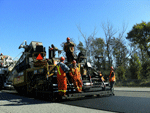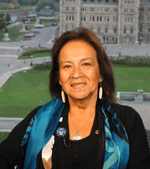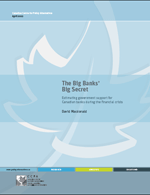Canada
Published on Wed, 2012-10-17 11:55

Working in Ontario. (Photo:
amber dawn pullin/Flickr/CC)
|
The ability of Canada’s young workers to find stable, well-paid, and meaningful work is increasingly under threat, warns a report released by the Canadian Centre for Policy Alternatives (CCPA). They are more likely to be unemployed or precariously employed in non-permanent jobs, and regardless of whether they have post-secondary qualifications, these young workers will likely endure the negative effects of un- and underemployment for years to come.
|
Published on Tue, 2012-09-25 08:57
The Comprehensive Economic and Trade Agreement (CETA) that Canada and the EU are negotiating behind closed doors would result in as many as 70,000 job losses in Ontario and would undermine independent government decision-making, according to a new report produced by the Canadian Centre for Policy Alternatives’ (CCPA) office in that province.
|
Published on Fri, 2012-09-14 09:34
Average tuition and compulsory fees for Canadian undergraduate students are estimated to rise almost 18% over the next four years, from almost $6,200 in 2011-12 to over $7,300, says a study released by the Canadian Centre for Policy Alternatives (CCPA).
|
Published on Mon, 2012-08-06 13:35

Photo: Xtra!
|
The Canadian Centre for Policy Alternatives' national office have just been moved to Under One Roof Properties, project that unites Ottawa-based progressive organizations with shared office spaces and facilities, aimed to foster an environment of interaction, collaboration and movement for social change.
|
Published on Fri, 2012-07-27 15:17

Armine Yalnizyan. (Photo: CCPA)
|
The closure in Peterborough, Canada, of a plant of the world’s biggest chain of ice-cream shows once again how the global economy affects the local economies, especially the employment and the salaries, explains in a column for The Global and Mail Armine Yalnizyan, senior economist at the Canadian Centre for Policy Alternatives (CCPA).
|
Published on Tue, 2012-07-03 08:37

Ellen Russell (CCPA)
|
Canada is not immune to the banking problems we see abroad, cautions “No More Swimming Naked”, a report released by the Canadian Centre for Policy Alternatives (CCPA) written by Ellen Russell, that examines how banks work, why they are inherently prone to instability, and how banking crises spread—even to banks and banking systems that appear to be stable. Russell warns that current regulations did not eliminate problems with risk-taking and overconfident behavior among banks.
|
Published on Thu, 2012-05-24 09:06

Buildings of the Federal
Government in Ottawa.
(Photo: Radio Canada)
|
The total number of federal core public service job losses over the next three years will be 29,600 —far more than the 19,200 estimate that is now commonly cited, says a new analysis by the Canadian Centre for Policy Alternatives (CCPA).
|
Published on Wed, 2012-05-16 09:30

Jeannette Corbiere Lavell.
(Photo: NWAC)
|
Based on the Canadian experience, the Native Women's Association (NWAC), the Feminist Alliance for International Action (FAFIA, member of the Social Watch national coalition) and other organizations stated this month at the UN Permanent Forum on Indigenous Issues that all governments should “immediately develop and implement a national strategy to address the disadvantaged social and economic conditions of Aboriginal women and girls, including poverty, inadequate housing, low educational attainment, inadequate child welfare policies, and over-criminalization”.
|
Published on Wed, 2012-05-02 08:43
Throughout the 2008-2010 financial crisis, Canadian banks were touted by the government and the banks themselves as being very stable and that they needed no bailout. However, in reality, Canada’s banks received billions in cash and loan support during the 2008-2010 financial crisis—and the government has remained resolutely secretive about the details, according to a study released this week by the Canadian Centre for Policy Alternatives (CCPA, one of the focal points of Social Watch in that country).
|
Published on Mon, 2012-04-09 13:14

The 144th Session of the
Inter-American Commission on
Human Rights. (Photo: HRBrief)
|
Over the last 30 years, more than 600 aboriginal woman and girls have been murdered or gone missing in Canada. The Inter-American Commission on Human Rights (IACHR) addressed this issue for the first time following a petition by Native Women’s Association of Canada (NWAC), the Canadian Feminist Alliance for International Action (FAFIA, one of the focal points of Social Watch in that country) and the University of Miami’s Human Rights Clinic.
|
SUSCRIBE TO OUR NEWSLETTER
Submit

|











